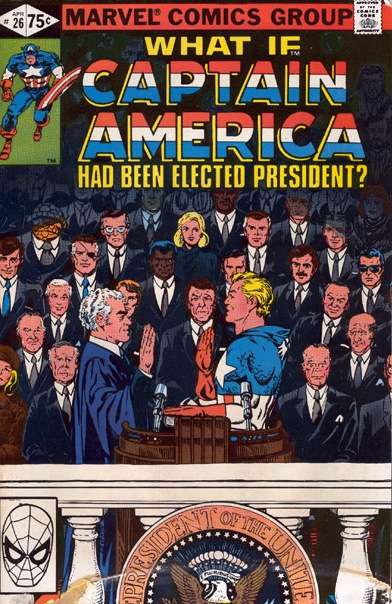The Trump Doctrine
In 2016, the GOP prefers nationalism to neoconservatism.

Donald Trump's foreign policy speech today may have been riven with inconsistencies, but it wasn't hard to discern an underlying idea that animated it. Trump is a nationalist, a man who believes—to quote the speech—that "the nation-state remains the true foundation for happiness and harmony." Sometimes that instinct serves him well, as when he condemns the wars in Iraq and Libya or when he suggests that the U.S. spends too much on NATO. Sometimes it serves him poorly, as with his border-control fantasies or his obsession with perceived slights to America. (A running theme of his talk today was the string of "humiliations" he thinks have befallen us. Even the president's failure to bring the Olympics to the U.S. got a shout-out.) You can't always predict where this will lead him; half a decade ago, his nose for humiliations had him endorsing the same war in Libya that he now condemns, declaring that failing to kick out Qaddafi would be "a major, major black eye for this country." But wherever he ends up, you can see that nationalist instinct at work.
The main instinct animating Ted Cruz's comments on foreign policy, meanwhile, seems to be What will get me elected president? Early on, this had him trying to triangulate between orthodox right-wing Republican views and the more anti-interventionist outlook of Rand Paul. When Paul's campaign fizzled and Trump's took off, Cruz switched to triangulating between orthodoxy and Trumpism. (If you're a libertarian who's been finding Cruz less likeable as the race goes on, that's one reason why.) Throughout it all, the senator has been both willing to bluster about making the sand glow and reluctant to endorse anything that smacks of nation-building or of a crusade to make the world safe for democracy.
So this is the state of the GOP four months into 2016. On one hand, there are no doves in the race. Even Paul felt he had to trim his sails when discussing ISIS or Iran. On the other hand, the crusader talk of the Bush years hasn't found a big audience either, as Marco Rubio learned to his chagrin. Nationalists who were willing to go along with the neocons in the early years of the War on Terror have now adjusted their attitudes. As far as foreign policy is concerned, Hillary Clinton is closer to the neoconservative vision than either Cruz or Trump is, a fact that speaks volumes about just how many loyalties may suddenly be up for grabs.


Show Comments (82)